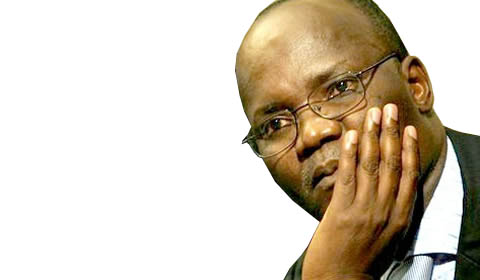


 ANXIETY has gripped workers in the government-owned media, some of whom have lived to tell of staff movements, retrenchments and dismissals during Information, Media and Broadcasting Services Minister Jonathan Moyo’s previous assignment to the same ministry between 2000 and 2005.
ANXIETY has gripped workers in the government-owned media, some of whom have lived to tell of staff movements, retrenchments and dismissals during Information, Media and Broadcasting Services Minister Jonathan Moyo’s previous assignment to the same ministry between 2000 and 2005.
Moyo is under pressure to turnaround the fortunes of the government-controlled media especially at the national broadcaster, the Zimbabwe Broadcasting Corporation (ZBC), where workers have gone for months without pay.
Speculation is rife that Moyo might influence the re-assignment of staff within the Zimbabwe Newspapers Group (Zimpapers), ZBC, New Ziana and elsewhere within his portfolio where government has a direct or indirect interest.
Zimpapers publishes The Herald, The Chronicle, H-Metro, B-Metro, the Sunday Mail, The Sunday News, the Manica Post, Kwayedza and several magazines.
The group is also invested in National Printers, BoldAds and StarFM, a radio station launched last year.
Unlike Zimpapers, which has turned the corner, ZBC is haemorrhaging as a result of declining revenue, which could get worse with the impending opening up of the television broadcasting sector.
There is therefore the gnashing of teeth at ZBC more than at any other public media institution in the wake of the financial crisis and the deteriorating industrial relations between management and workers.
When Moyo was made information minister in 2000, he made far reaching changes in the manner the public media was run.
Not only did he introduce radical policy changes, including spearheading the promulgation of the draconian Access to Information and Protection of Privacy Act, but he also influenced personnel changes involving top managers and editors as he sought to ensure total control of the companies’ strategic direction.
Known for his hands-on approach to business, Moyo, along with his deputy Supa Mandiwanzira, have hit the ground running.
Since their appointment last month, they have visited government-owned media houses and held meetings with their management. The visits now extend to private media houses as they seek to understand the situation on the ground before plotting the direction to take in the short, medium to long-term.
Moyo has, however, wasted no time in reinforcing the 75 percent local content on national radio and television, which he pioneered during his “first coming” but had been abandoned by his successors namely Tichaona Jokonya (now late), Sikhanyiso Ndlovu and Webster Shamu.
Another of his project which has since been abandoned was the unbundling of the Zimbabwe Broadcasting Holdings into several strategic business units.
Moyo was not reachable for comment yesterday. His deputy, Mandiwanzira told this reporter the ministry would concentrate on policy matters.
“The ministry has plans to formulate policy to help grow the media industry in Zimbabwe. It does not plan on management changes anywhere because it is the responsibility of boards at the parastal to run the institutions,” he said.
Moyo left government unceremoniously in 2004. At the time, he had been accused of being part of a group of politicians that had attempted to block the ascendance of Vice President Joice Mujuru to her present position in favour of Justice Minister Emmerson Mnangagwa.
Moyo, who was elected to the House of Assembly as an independent candidate in 2005 and 2008 denied the accusations, which later fizzled out.
In 2008, ZANU-PF’s secretary for administration Didymus Mutasa was later to describe the accusations as a farce.
Moyo bounced back in ZANU-PF in 2009 and was spectacularly made a member of the party’s supreme decision making body in between congresses, the Politburo that same year.
He was one of the chief architects of ZANU-PF’s election campaign although he lost his Tsholotsho North seat. He is however, challenging his loss in the courts.